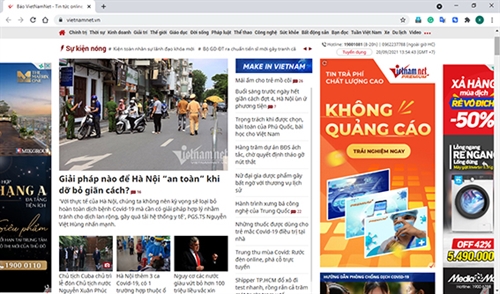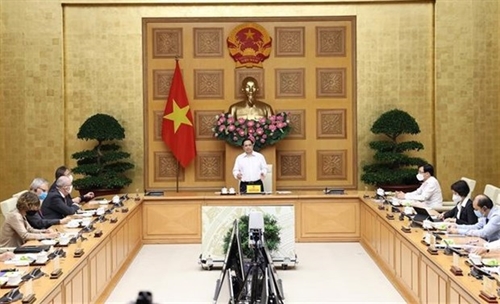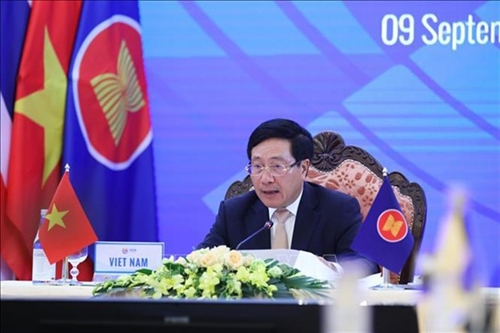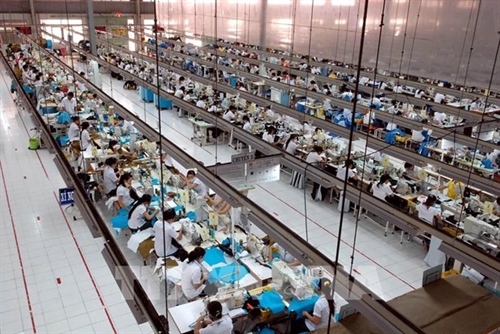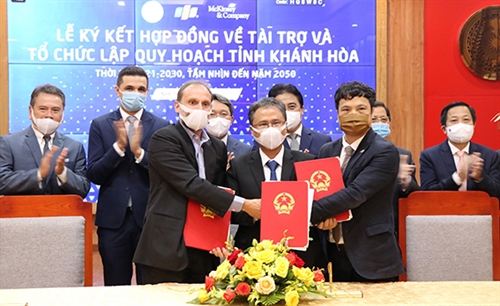Since early this year, as the COVID-19 pandemic has seriously disrupted production and business activities in the country, a number of financial support packages have been launched by the National Assembly and Government to help enterprises overcome difficulties and to resume the economic growth.
On August 6, the National Assembly Standing Committee issued Resolution 268/NQ-UBTVQH allowing the Government to issue resolutions with contents different from provisions of laws so as to help businesses quickly restore production.
In furtherance of Resolution 268/NQ-UBTVQH, the Government has issued a series of resolutions on support policies for businesses to overcome difficulties caused by the pandemic, including Resolution 105 of September 9, Resolution 116 of September 24, and Resolution 126 of October 8, revising Resolution 68 of July 1.
Previously, several support policies have been implemented, such as Government Decree 52 on extension of time limits for payment of value-added tax, corporate income tax, personal income tax, and land rental in 2021; Prime Minister Decision 23, on support policies for employees and employers facing the pandemic-caused difficulties, and Prime Minister Decision 27, on reduction of land rentals for the pandemic sufferers.
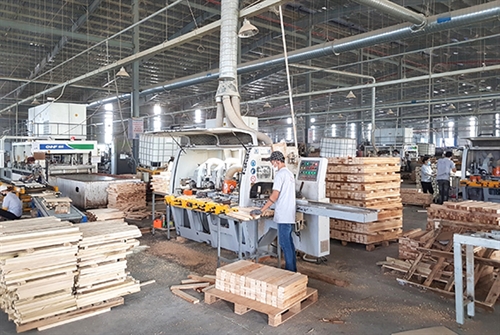 |
| Producing exports at Trieu Phu Loc One-Member Co. Ltd. in Binh Duong province__Photo: VNA |
Tax and land rental supports
Government Decree 52 says that enterprises, organizations, business households, and individuals engaged in production activities in economic sectors such as agriculture-forestry-fisheries, food production or processing, textile, transportation and warehousing, and tour operation will enjoy the extension of tax payment time limits of six months counting from May 31.
In late October, Decree 92 is released to detail Resolution 406/NQ-UBTVQH15 of the National Assembly Standing Committee, offering tax reductions for enterprises and individuals affected by the pandemic.
Specifically, a 30 percent reduction in payable corporate income tax amounts will be given to enterprises earning revenues in 2021 not exceeding VND 200 billion and being lower than those of 2019.
The Decree also gives exemption from personal income tax, value-added tax and other taxes in the second half of this year to individuals and households in the pandemic-hit districts.
The value-added tax on certain goods and services will also be reduced under the new regulation. Besides, no interests will be applied for late payments arising in 2020 and 2021 for enterprises and organizations suffering losses last year.
As for land rental, Prime Minister Decision 27 dated September 25 allows organizations, units, enterprises, households and individuals that lease land directly from the State with annual payment of land rental to enjoy a 30 percent reduction in land rental amounts payable in 2021. However, the incentive does not apply to the outstanding land rental amounts of the years prior to 2021 and late-payment interests (if any).
Supports from social insurance funds
As prescribed in Government Resolution 116, employers that start to pay unemployment insurance premiums before October 1, 2021, will be entitled to reduction of the payment rate from 1 to zero percent of the monthly wage fund of the employees covered by unemployment insurance for 12 months, staring from October 1, 2021.
Under Prime Minister Decision 23, employers will enjoy a zero percent rate of payment of their salary funds on which social insurance premiums are based to the Occupational Accident and Disease Insurance Fund for one year, counting from July 1, 2021.
Employers may use the reduced contributions for supporting their employees.
Under Decree 58 issued in 2020, the normal rate of compulsory social insurance premiums payable to the Occupational Accident and Disease Insurance Fund is 0.5 percent of the salary funds on which social insurance premiums are based. Meanwhile, the rate of 0.3 percent is applied to enterprises operating in sectors highly prone to occupational accidents and diseases.
According to Government Resolution 126, for employers that have fully paid social insurance premiums by the end of January 2021 or temporarily suspend payment of premiums to the Retirement and Survivorship Fund and have to downsize by 10 percent or more of their employees covered by social insurance as compared to January 2021, they and their employees may suspend payment of premiums to the Fund for six months from the date of request for support.
As provided in Government Resolution 68, employers may receive a financial support for training and improvement of vocational skills of employees from the Unemployment Insurance Fund not exceeding VND 1,500,000 per employee per month for six months.
To enjoy the support, employers must satisfy several conditions. Firstly, they must have fully paid unemployment insurance premiums for their employees for 12 months or more by the date of request for support. Secondly, they change their technological structure under Article 42.2 of the Labor Code. Thirdly, their revenues of the quarter preceding the date of request for support are decreased by 10 percent or more against the same period in 2019 or 2020. Finally, they formulate training plans by themselves or collaborate with vocational education institutions in formulating training plans in order to maintain jobs for their employees.
Loan supports
In light of Government Resolution 68, enterprises may borrow loans from the Vietnam Bank for Social Policies at a zero percent interest rate without loan security to pay salaries to their employees who pay social insurance premiums and have to cease working for 15 consecutive days or more, for 11 months from May 1, 2021.
Such incentive will also be granted to employers that have to suspend their operation as requested by competent authorities, and those operating in the fields of transportation, aviation, tourism, accommodation services, and sending of Vietnamese guest workers for the above 11-month period for them to pay salaries to their employees who work under labor contracts and currently participate in compulsory social insurance.
The maximum loan amount is equal to the three months’ actually paid amount based on the region-based minimum wage for the employees working under labor contracts. The loan term is shorter than 12 months.
To enjoy the incentive, the enterprises must have no bad debts at credit institutions or foreign bank branches.
The enterprises become more accessible to the support when Government Resolution 126 removes the above condition concerning bad debts.
In an online policy talk on “Support for enterprises amid the COVID-19 pandemic: From policy to practice”, held on October 1 by Tap chi Hai quan (Customs e-Magazine), Dau Anh Tuan, Director General of the Legal Department, the Vietnam Chamber of Commerce and Industry, said tax and credit policies have exerted great impacts on enterprises, and helped them resolve difficulties caused by the pandemic. He suggested that support solutions should be devised in a way that enables enterprises to implement by themselves without having to wait for approval of competent authorities.
In a talk with the Government’s online newspaper, Dr. Nguyen Thanh Nam, Director of the GATTACA Law Firm, said the understanding and application of support policies by enterprises, especially small-sized ones, remain limited. “In addition to widely disseminating new tax policies to the business cycle and people, tax offices should categorize them by taxpayer so that such policies can be more accessible to all beneficiaries”, he proposed.-
